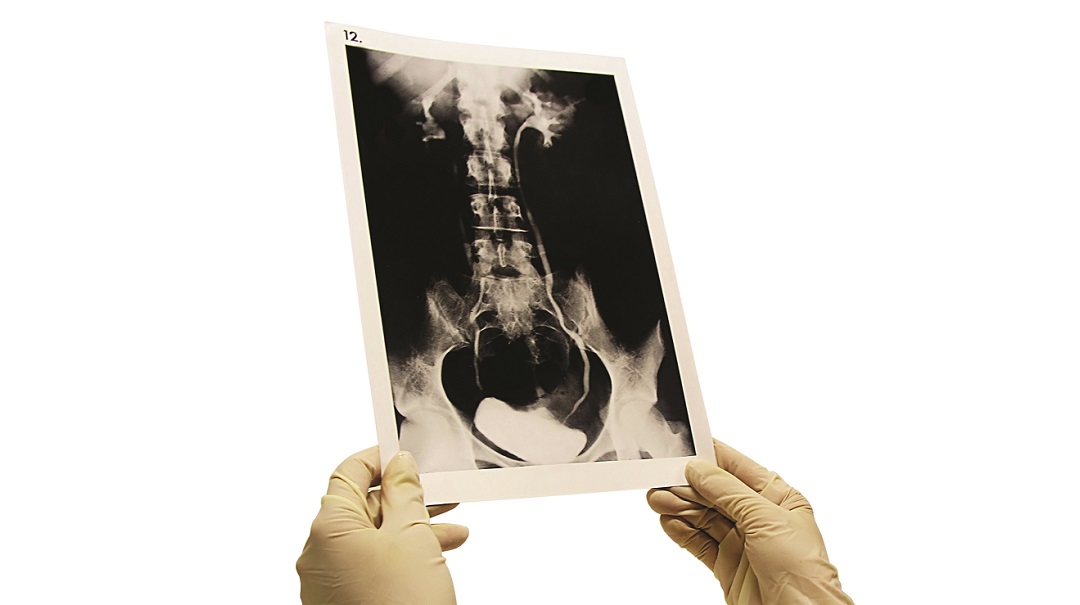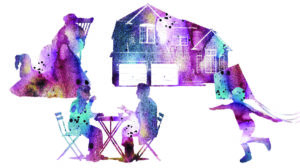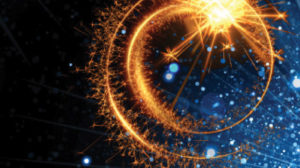New Lease on Life


T
hursday, April 8, 2010. I was visiting my doctor for a routine checkup, when he looked at me gravely and said, “You have a huge tumor.”
His words came as a total shock. I was healthy, in my mid-50s, and wasn’t experiencing any unusual symptoms.
Having worked as a radiologist for close to three decades, however, I wasn’t terribly concerned, since I knew that the type of tumor my doctor had found was easily curable in most cases.
Initial testing showed that my tumor was a rare type, more aggressive than most and less responsive to treatment. Still, I figured that as long as the tumor hadn’t spread, it wasn’t so bad.
I took a CT scan in my own office and read the results on my computer. Instantly, I knew it was serious. The cancer had already spread.
My first reaction was to speak to my wife. “We’re in big trouble here,” I told her. “I might die within two or three years. But before I die, I’m going to work on my middos and become a better husband and father.”
It was inconceivable to me that Hashem had sent me this devastating illness because I didn’t hold my Kiddush cup a certain way, or because He wanted me to take on a particular chumra. My family wouldn’t remember if I had worn exceptionally mehudar tefillin, but they’d remember if I yelled at them for spilling milk on the carpet. Instead of checking the mezuzos of my house, therefore, I decided to check the mezuzos of my heart.
Y
ou may remember me, Tuvia Meister, from the LifeLines story “Ticket to Eternity,” which was printed about two months ago. In that story, I wrote that I did not know how much longer I had to live, but I was calm about my future because I had learned every single masechta and was assured entry to all the “classrooms” in Gan Eden.
From the time I became a baal teshuvah and resolved to learn kol haTorah kulah, my goal was to die a learned man. But from the time I discovered I had cancer, my goal was to die a good man, in the eyes of my wife and children.
As someone who was drawn to the frum community for its high moral and ethical standards, I was always very bothered when I encountered frum people whose behavior was less than stellar. I thought that Yiddishkeit was good, and that frum people were good, and it hurt to discover that the society I had joined wasn’t as perfect as I had imagined.
Rather than become disillusioned, however, I chose to use my disappointment as a catalyst for self-improvement. Now that I sported a beard and peyos, people were looking at me as a representative of Yiddishkeit. Did my behavior live up to the standards I expected of my frum counterparts? Or was I also guilty of hypocrisy, faithfully observing minute details of halachah while flouting basic moral standards or stepping on the people around me?
I couldn’t change other people, but at least I could change myself. And if I took an honest look in the mirror, there was much that needed change. I have to say, studying all of Torah was easy compared to working on my middos.
Growing up in the self-centered ’60s, and graduating medical school at the young age of 22 with dreams of becoming a brain surgeon, I certainly had more than my fair share of conceit, which inevitably leads to impatience and anger. For years, therefore, I had been trying to work on my gaavah and ca’as. But there’s nothing like hearing the words “You have cancer” to spur you to do what you know you need to do. When I heard those words, I knew that my avodah wasn’t to chase after every last segulah out there, but rather to fix that which was broken inside.
In my book, The Meister Plan (ArtScroll/Mesorah), I had outlined a methodical plan for both learning Torah and, l’havdil, saving money. The book’s basic premise was that small amounts add up — step by step, brick by brick, a person can cover all of Torah, and save up money to marry off children. I took a similar approach to working on my middos, with the belief that even very bad middos can be conquered with small steps that add up over the years to big changes.
Ever since my diagnosis I tackled the middah of anger using the approach of a recovering alcoholic (even though I was not a drinker). A former alcoholic can never allow himself to take a single drink, for fear of relapsing, so he has to plan every day carefully. If he knows there’s an office party at five o’clock, he has to plan to either skip the party, or hold a bottle of water or soda in his hand the entire time, to ensure that he won’t take even a sip of alcohol. If he passes a bar on his way home from work, he has to find a different route that doesn’t involve temptation.
Similarly, one of the small steps I took in my quest to conquer anger was to wake up each morning and try to anticipate situations in the coming day that might lead to anger — perhaps one of the kids was going through a hard time, perhaps I had a tough medical treatment coming up, or perhaps it was getting close to Pesach, when tensions tend to run high. I’d devise strategies to either sidestep a potentially tense situation, or avoid getting angry despite the tension. Like the alcoholic, I tried to maintain a constant awareness that I had to avoid anger at all costs.
I’m not Superman, and I’m not perfect, so there have been many times when I failed. But I think my family would agree that I am a different person today from the man I was five years ago. My home has been completely transformed, and my relationships are vastly improved.
Another small-step technique I use is rehearsing for the next scene on the stage that is life. As a physician, I’m keenly aware of the horrible things this cancer can do — where it can spread, which organs it can block up, how it can incapacitate me. I’ve seen these things happen many times to my own patients, and they are very scary. But rather than try to block out the future, or live in fear, I think of how I would cope if those situations were to happen. For years, I rehearsed what would happen if the cancer spread to my spine. When it finally did, last August, I was prepared, and the actual situation was not that hard to cope with.
“Not that hard to cope with” might convey the wrong impression. Cancer has destroyed much of my life. It robbed me of much of my mobility; I often need a cane just to move around my house. It sapped me of my vitality, and turned me into an old man while still in my 50s. The chemo blurred my vision, which ended my career, because I could no longer read X-rays.
There were periods when the treatments left me so knocked out, I slept 18 hours a day, like a newborn baby. For five months, the tumor put pressure on a nerve near my left kidney, causing unbearable, relentless agony similar to that caused by a kidney stone. I took painkillers regularly, but even the strongest painkillers left me clenching my teeth in pain at times, and struggling not to lash out at the people around me.
But the biggest challenge of all was the lack of energy. The chemo messed with my pituitary and adrenal glands, as well as other organs, turning me into a dried-out piece of wood. Without the chiyus that drives a person to get up in the morning, go to shul, eat breakfast, and sit down to learn, it’s a struggle just to go through the motions of daily living — and that’s even on a good day.
Yet the choice remains mine: I can think about all that I’ve lost, and be miserable. Or I can think about all that I have, and be joyful. Every day of my illness, I chose the latter.
When I was in terrible pain, I said, “Thank G-d for painkillers!” When I started chemotherapy, I said, “Thank G-d for creating these treatments, and thank G-d for giving me medical insurance to cover it!” When my vision blurred, I said, “Thank G-d for magnifying glasses! Thank G-d for large print! Thank G-d for good lighting — if I had to learn by candlelight, in a shtetl, I’d be in big trouble!”
The list was, and is, endless. Thank G-d I have life insurance. Thank G-d for kind neighbors. Thank G-d we live in a malchus shel chesed, where I can receive disability benefits even though I no longer earn a paycheck. Thank G-d we always lived a simple lifestyle, so that even though my income is not nearly what it used to be, we can still make ends meet.
And then there’s the biggie: Thank G-d for family. To frum people, family seems like a given. But outside of our communities, the family is an endangered species. I am still in touch with friends I grew up with, people I have known since before kindergarten. Some never married. Some never had any children. Hardly any have grandchildren.
I used to think I did Hashem a big favor by becoming frum, when none of my relatives or friends had any connection to Yiddishkeit. But I now realize that He did me the favor by plucking me out of the moral swamp of the ’60s and planting me in a Torah-observant community. Because I’m frum, I have a wife, eight children, and a bunch of delightful grandchildren who give me constant help and support. I also have something precious called emunah, which puts this nisayon into context: I know that everything Hashem does is good, so I believe that there is a purpose to every bit of suffering I experience. I also have Someone to turn to any time I feel pain or fear. If I hadn’t become frum, dealing with cancer would be an unfathomable nightmare.
When I first told my children of my diagnosis, they were shocked and devastated. Since then, however, their attitude toward my illness has, for the most part, mirrored mine. I am grateful to Hashem for all that He has given me, and that makes our house an upbeat, happy place — even happier than it was before I was diagnosed.
My teenage daughter has a friend who spends a lot of time in my house. “You have such a fun and happy house,” this girl told my daughter. “I just like being here.” And this is with me being sick and disabled and unemployed.
I believe that Hashem can do anything, and this conviction has filtered down to the children. But in our wildest dreams, we could never have imagined how dramatically this belief would be borne out.
When I was first diagnosed, I was placed on a chemo regimen that was supposed to keep the cancer at bay for 18 months. Much to my dismay, the cancer stopped responding to the treatment after only 12 months.
At that point, my oncologist suggested I join a clinical trial of a new chemo drug that was not yet FDA-approved. Figuring I had nothing to lose, I joined the trial.
At the time, I didn’t know whether I was in the experimental group or the control group. While receiving the treatments, I couldn’t be sure whether the fluid flowing into my veins was the experimental drug or a sugar-water placebo.
The researchers who conducted the trial recently released the preliminary results of the experiment. In 84 percent of patients, the drug didn’t help. In 14 percent of patients it helped a bit. In 2 percent of patients, the cancer went to sleep.
Hashem not only put me into the experimental group, He put me in the 2 percent! And indeed, for almost three years my cancer went to sleep. On the same day that the computer “randomly” assigned me the experimental drug, there was another fellow there with me who was assigned the placebo. A few months later, his cancer was ten times larger.
Being chosen for the experimental drug wasn’t the only stroke of open Hashgachah I experienced. The clinical trial accepted only 600 men worldwide, and only 150 in the United States. A few months after I joined, the study was closed to new entrants. If my original chemo had worked for the expected 18 months, then by the time it would have stopped working, the clinical trial would have been closed. Because the chemo worked for only 12 months, I was able to join the clinical trial and gain a reprieve of close to three years. What seemed bad for me at the time turned out to be wonderful.
But wait! There’s more.
My last dose of the experimental drug was in May 2014. In August, the cancer spread to my spine. There was a large hunk of cancerous growth to the left of my lower spine that was pressing on a nerve and causing me tremendous pain. I underwent radiation at the end of December to shrink that cancer, and thankfully, the pain went away. But then, in February, I started breaking out in painful, itchy rashes, the same type of rashes that were side effects of the experimental drug, and which I suffered from throughout the duration of the clinical trial. I hadn’t taken the drug in eight months, though, so why should these rashes be recurring?
It turns out that the radiation had performed techiyas hameisim on the experimental drug and on my immune system. When cancer is killed by radiation, it releases dead cancer proteins into the bloodstream, which are then removed by the kidneys. Apparently, these proteins can reignite remnants of the experimental drug and prompt the immune system to kill cancer all over the body. This phenomenon is very rare — it happened only twice before, to melanoma patients at New York’s Sloan Kettering Cancer Center. The rashes I was experiencing were a sign that remnants of the experimental drug stored in my body had come roaring back to life. Rashes notwithstanding, I felt better than I had felt in five years.
I was supposed to start a new chemo regimen, in addition to the basic chemo that I’m on, but this miraculous chain reaction is doing such a good job of killing the cancer that my oncologist has held off any new treatments. My doctors are so excited about what happened to me that they want to publish a medical paper about it.
This last miracle came to light shortly after the publication of my first LifeLines story. After that story was published, I was asked to speak publicly on Pesach, and for the first time in years, I actually felt well enough to do so. In my talk, I gave thanks to Hashem for allowing me to beat the medical statistics and reach this point.
But while I am exceedingly grateful to Hashem for allowing me to reach the five-year survival mark, I am also exceedingly grateful to Him for the gift of cancer. From the very beginning, I have thanked Hashem aloud, and often, for giving me cancer. I would never have prayed to receive such a gift, and I pray to be cured of this gift for good, but for no money would I give back the experience of having had cancer. Cancer has turbocharged my Yiddishkeit, and has invigorated my relationships with my wife, with my kids, and with Hashem. Like the experimental drug that gave me a new lease on life, cancer has granted me techiyas hameisim while still in this world.
(Originally featured in Mishpacha Issue 558)
To have your story retold by C.Saphir, e-mail a brief synopsis to lifelines@mishpacha.com or call +1.718.686.9339 extension 87204 and leave a message. Details will be changed to assure confidentiality.
Oops! We could not locate your form.













